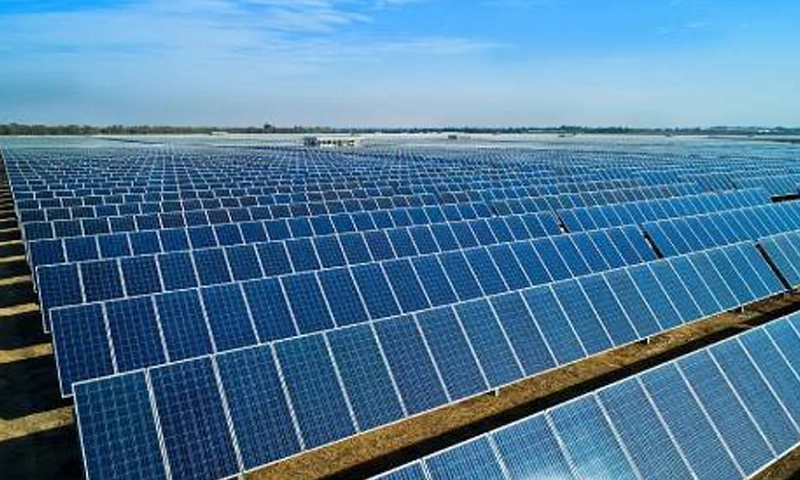- Web Desk
- Feb 19, 2026
ECNEC approves 100MW solar power project for G-B
-

- Tanveer Abbas Web Desk
- Aug 09, 2025

GILGIT: The Executive Committee of the National Economic Council (ECNEC) has approved 100 megawatts photovoltaic solar power projects at various locations in Gilgit-Baltistan.
During his visit to Gilgit last week, Prime Minister Shehbaz Sharif unveiled the plan for the 100-megawatt solar power project.
In November last year during his visit to the region for inauguration of a model village for the people affected by flood in Ghizer district, Prime Minister Sharif announced the project for the region to address the region’s persistent power shortages.
At that time briefing the media about premier’s visit, special assistant to G-B chief minister Eman Shah had said that the premier had issued orders for completion of the project within one year. However, since then, little progress had been made.
During the recent visit to the region, the premier announced that ECNEC would approve the project soon.
Acting on his directives, according to a statement issued by G-B Information Department on Saturday, the ECNEC approved the project. The statement said that after approval from the committee, proper work on the project will start soon. It said that the Central Development Working Party (CDWP) has already approved the project.
“The project will benefit the districts of Astore, Darel, Tangir, Diamer, Ghanche, Ghizer, Gilgit, Hunza, Ishkoman, Nagar, Rondu, Skardu, and Shigar,” reads the statement.
In the first phase, it said Skardu district will be provided with 18.958 megawatts of electricity.
While in the second phase, the districts of Hunza, Gilgit, and Diamer will be provided with 6.005 megawatts, 28.013 megawatts, and 13.126 megawatts of electricity, respectively.
“In the third phase, the remaining districts will be provided with 16.096 megawatts of electricity. Additionally, 18.162 megawatts of off-the-grid electricity will be provided to hospitals and government offices under this project,” the statement added.
It said that the project would be completed within three years at a cost of Rs24,957 million.
Routine load-shedding is widespread across fuel-deprived Pakistan, but residents of the mountainous, snow-covered regions in Gilgit-Baltistan endure prolonged blackouts.
People in the region usually rely on wood to keep warm as both gas and fuel-operated generators are too expensive.
With the falling mercury level in Gilgit-Baltistan each year, prolonged darkness envelops the hydropower haven for days and nights, disrupting businesses and exacerbating the struggles of its residents.
As winter descends, power outages stretch up to 21 hours a day, plunging the area into despair.
The Gilgit-Baltistan (G-B) region, despite having abundant water resources, experiences a drastic change in power dynamics as November sets in. Freezing sub-zero temperatures persist until May, causing water sources to freeze and halting hydropower generation. Due to its heavy reliance on hydropower, the region faces extended load shedding during these months.




